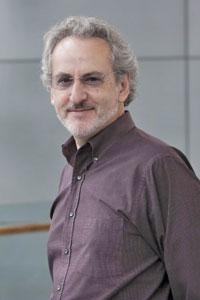非常抱歉,
你要访问的页面不存在,
非常抱歉,
你要访问的页面不存在,
非常抱歉,
你要访问的页面不存在,
验证码:

职称:Judah Folkman Professor of Vascular Biology and Professor of Bioengineering
所属学校:Harvard University
所属院系:Bioengineering
所属专业:Bioengineering and Biomedical Engineering
联系方式: (617) 432-7044
Donald E. Ingber is the Judah Folkman Professor of Vascular Biology at Harvard Medical School and Boston Children's Hospital, Professor of Bioengineering at the Harvard John A. Paulson School of Engineering and Applied Sciences, and the Founding Director of the Wyss Institute for Biologically Inspired Engineering at Harvard University. He received his B.A., M.A., M.Phil., M.D. and Ph.D. from Yale University. Dr. Ingber is a founder of the emerging field of biologically inspired engineering. Dr. Ingber has made major contributions to mechanobiology, tissue engineering, tumor angiogenesis, systems biology, and nanobiotechnology. He was the first to recognize that tensegrity architecture is a fundamental principle that governs how living cells are structured to respond biochemically to mechanical forces, and to demonstrate that integrin receptors mediate cellular mechanotransduction. At Harvard's Wyss Institute, he oversees a multifaceted effort to identify the mechanisms that living organisms use to self-assemble from molecules and cells, and to apply these design principles to develop advanced materials and devices for healthcare and to improve sustainability. He also leads the Biomimetic Microsystems platform in which microfabrication techniques from the computer industry are used to build functional circuits with living cells as components. His most recent innovation is a technology for building tiny, complex, three-dimensional models of living human organs, or "Organs on Chips," that mimic complicated human functions as a way to replace traditional animal-based methods for testing of drugs and establishment of human disease models. Dr. Ingber has authored more than 375 publications and 85 patents, and has received numerous honors including the Holst Medal, Pritzker Award from the Biomedical Engineering Society, Rous-Whipple Award from the American Society for Investigative Pathology, Lifetime Achievement Award from the Society of In Vitro Biology, and the Department of Defense Breast Cancer Innovator Award. He also serves on the Board of Directors of the National Space Biomedical Research Institute, and is a member of both the American Institute for Medical and Biological Engineering, and the Institute of Medicine of the National Academies.
Donald E. Ingber is the Judah Folkman Professor of Vascular Biology at Harvard Medical School and Boston Children's Hospital, Professor of Bioengineering at the Harvard John A. Paulson School of Engineering and Applied Sciences, and the Founding Director of the Wyss Institute for Biologically Inspired Engineering at Harvard University. He received his B.A., M.A., M.Phil., M.D. and Ph.D. from Yale University. Dr. Ingber is a founder of the emerging field of biologically inspired engineering. Dr. Ingber has made major contributions to mechanobiology, tissue engineering, tumor angiogenesis, systems biology, and nanobiotechnology. He was the first to recognize that tensegrity architecture is a fundamental principle that governs how living cells are structured to respond biochemically to mechanical forces, and to demonstrate that integrin receptors mediate cellular mechanotransduction. At Harvard's Wyss Institute, he oversees a multifaceted effort to identify the mechanisms that living organisms use to self-assemble from molecules and cells, and to apply these design principles to develop advanced materials and devices for healthcare and to improve sustainability. He also leads the Biomimetic Microsystems platform in which microfabrication techniques from the computer industry are used to build functional circuits with living cells as components. His most recent innovation is a technology for building tiny, complex, three-dimensional models of living human organs, or "Organs on Chips," that mimic complicated human functions as a way to replace traditional animal-based methods for testing of drugs and establishment of human disease models. Dr. Ingber has authored more than 375 publications and 85 patents, and has received numerous honors including the Holst Medal, Pritzker Award from the Biomedical Engineering Society, Rous-Whipple Award from the American Society for Investigative Pathology, Lifetime Achievement Award from the Society of In Vitro Biology, and the Department of Defense Breast Cancer Innovator Award. He also serves on the Board of Directors of the National Space Biomedical Research Institute, and is a member of both the American Institute for Medical and Biological Engineering, and the Institute of Medicine of the National Academies.